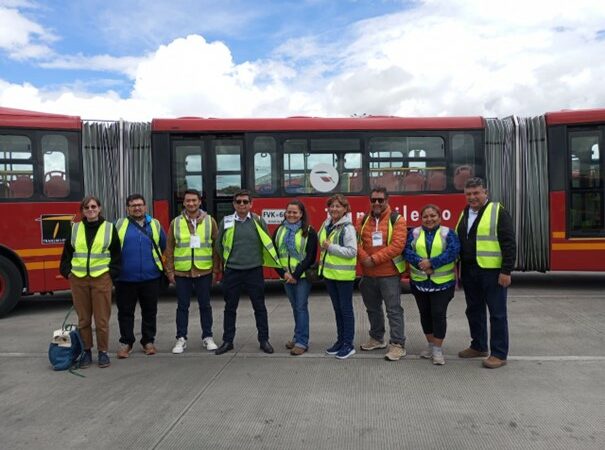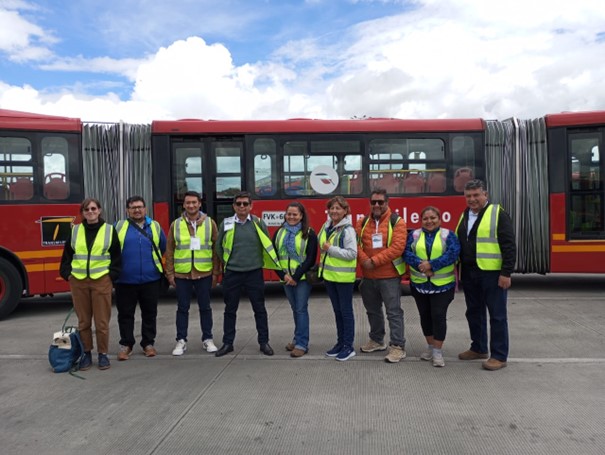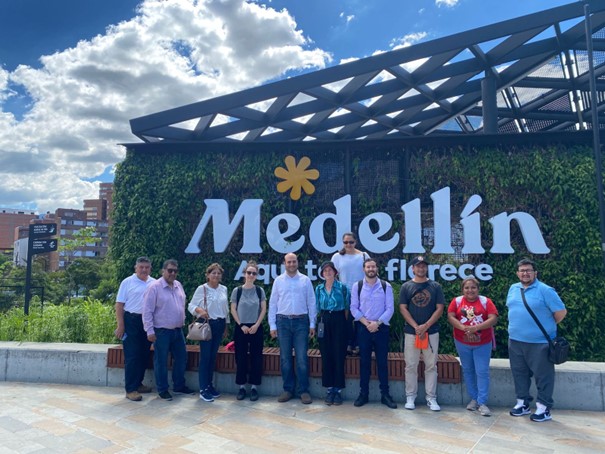
A Peruvian delegation visits Colombia
A delegation of six Peruvian officials visited Colombia on the occasion of the first study trip organised as part of the technical cooperation established between the Agence Française de Développement, the Peruvian Ministry of Transport and Communications and CODATU.
With the aim of providing them with a privileged space for reflection and exchange on the challenges of transport and urban mobility, in order to adapt this know-how to their local reality, representatives of various public entities (from the PROMOVILIDAD National Sustainable Urban Transport Programme and the Provincial Municipalities of Arequipa, Huamanga, Piura and Cusco) were accompanied by CODATU from 26 to 30 June 2023 to discover the mobility policies in two emblematic Colombian cities in the region: Bogota and Medellin.
The study trip enabled the delegation to take part in the activities of the Regional Forum on Urban Mobility organised by CODATU, Transdev and the University of the Andes in Bogotá. Three days packed with meetings with experts from the region: the MobiliseYourCity side event on Monday morning, followed by the Forum on Tuesday 27, and visits to the Green Móvil logistics centre – which is the base for the operation of 406 electric buses and the hydrogen production infrastructure – and the Bogotá Móvil BRT bus depot (both subsidiaries of Fanalca-Transdev), the main concessionaire for the TransMilenio public transport system. These site visits enabled members of the delegation to discover the operations from the inside, the maintenance processes, the logistics of fleet movements and the contractual conditions that have made it possible to consolidate these urban transport models.

The Peruvian delegation continued its study trip in Medellin, where it was welcomed by the city’s Cooperation and Investment Agency (ACI). While there, they were able to meet the teams from the Mobility Subsecretariat of the Aburrá Valley Metropolitan Area – an administrative entity that groups together the 10 municipalities in the area and acts as the metropolitan public transport authority – as well as the public operator Metro de Medellín, the city’s Mobility Secretariat and the private bus operator Masivo de Occidente.
During these meetings, the members of the delegation were able to discuss the mobility reforms undertaken by the local authorities in recent years with the various professionals involved, and find out about the processes used to ensure the articulation and coherence of the integrated transport system at metropolitan level and all the sub-systems managed and operated by the various public and private entities. Finally, they went on a field trip with the Medellín Metro team to see for themselves how the metro, cable cars and tramway, flagship projects of the metropolitan system, work.

